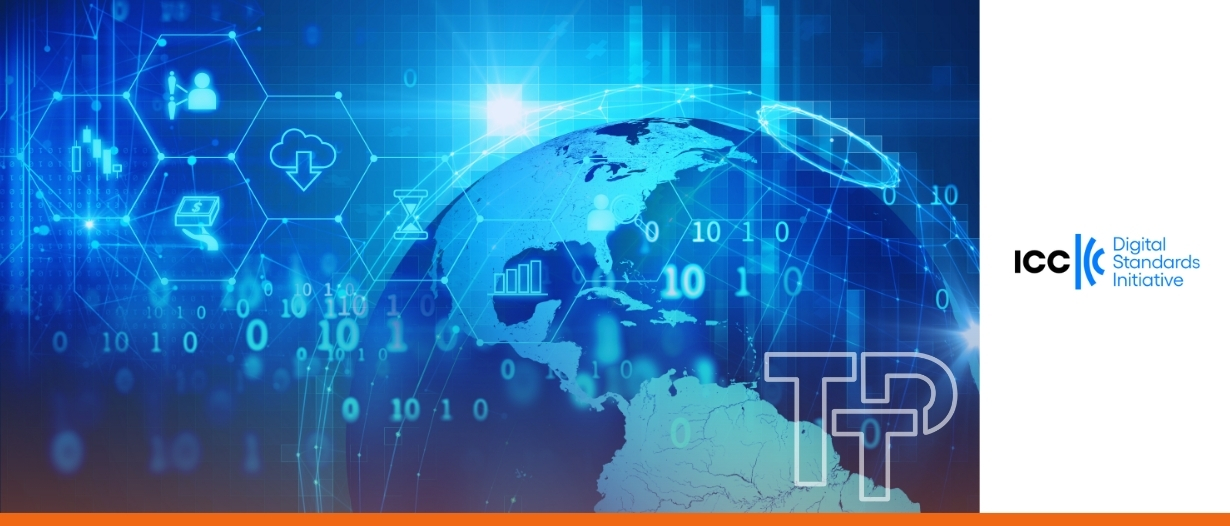New York adopts UCC Article 12, modernising law for digital asset transfers and electronic records
Deepesh Patel
Jun 12, 2025
 Pamela Mar
Apr 25, 2025
Pamela Mar
Apr 25, 2025

For centuries trust has been the backbone of trade. From the interpersonal to the communal to the national and now to the international, the expansion of trust methodologies has enabled that evolution in trade, despite its complexity. Trust for trade has evolved to incorporate systems of codes, certifications, checks, monitoring, stamps, policies, and protocols to enable dozens and sometimes hundreds of parties to align and perform in a single supply chain across different geographies.
At the same time, digital technologies clearly offer the possibility of “going paperless” as a matter of convenience, cost, and efficiency. Digital is not only a new way to execute existing processes but also a prompt to fundamentally rethink how trust is generated, transferred, and valued along the supply chain. Crafting and then implementing this vision is at the heart of the Digital Standards Initiative (DSI).
The DSI’s ambition is to transform trade so that the end-to-end supply chain is driven by digitalised processes across public and private nodes that rely on common frameworks for data standards and electronic records to facilitate seamless data sharing, security, and traceability. In such an ecosystem, data would be generated once, tagged at the source, and then shared by permission with relevant parties in the supply chain. Each user would see what they need and have the ability to verify its truth, authenticate its provenance, and trust its journey through secure tracking.
The two key pillars in such an ecosystem are standards for the data and standards for the flow of that data across the chain. With the release of the Key Trade Documents and Data Elements (KTDDE) framework in 2024, the DSI has made headway towards the former by mapping, for the first time, core data that is needed for the execution of 36 key trade documents representing key processes along the supply chain. Such a framework provides guidance to trade platforms and their users on convergence towards globally interoperable data standards. The second stage of this work, which is already underway, involves providing data semantic connectors and solving interoperability issues across differing standards to facilitate adoption and connectivity to existing corporate data processes.
Beyond aligning with KTDDE standards, users must align with technology principles for managing, sharing, and securing the data and electronic records (documents) that enable trade. This is outlined in the 2023 DSI publication Trust in Trade. Stakeholders must agree on the application of technologies to achieve the seamless transfer and sharing of documents and data, as well as their verification, authentication, and protection.
In this vision, “every digital interaction in an international trade transaction should become verifiable, non-repudiable, retro-traceable, accountable, and auditable for any required retention period.”
Trust, in its trade semantic, should always be established through verifiability. The overall conception should adhere to the “never trust, always verify” mantra, embodied by the counterintuitively labelled “Zero Trust Architecture” movement, which is rapidly growing within the cybersecurity industry. This creates a vision of a new, verifiable digital layer beneath the information supply chain, which itself underpins the physical and financial supply chains: i.e., a “trust supply chain”.
A trust supply chain enables data and documents to flow across organisational boundaries with the same protections as if they were being shared within a permissioned or closed network. Cryptography deployed in Public Key Infrastructures (PKI) is instrumental to achieving this goal and ensuring that the multitude of parties in trade will be legally protected. In essence, the trust supply chain will eliminate the need to build “members-only” networks with restricted data sharing, as it will provide the same level of security and trust across broader, decentralised networks.
This feature of the future digital trade ecosystem guarantees it will have all needed security while being open, inclusive, and scalable, even given the heterogeneity in today’s trade environment.
Arriving there will require significant progress in the availability of software and hardware across the global supply chain, advancements in PKI, and substantial upgrades in organisational capabilities. In other words, permissioned, high-walled networks may remain a practical and commercially viable option for some time. But given the scale limitations of these incumbent networks, we should already be seeking ways to transition toward the future of a trust supply chain.
A first step towards this could focus on protocols for the reliable transfer of electronic documents, or in particular electronic transferable records (ETRs), which can be seen as precursors to a supply chain that transacts only in data.
With the release of a technical framework for reliability in October 2024, the DSI and the Digital Governance Center in Canada have provided a way for platforms or systems to evidence their ability to transmit ETRs while guaranteeing the ETR’s singularity, integrity, and exclusive control during the process. The Model Law on Electronic Transferable Records (MLETR) outlines clear requirements for such systems as follows:
The framework should not be confused with applications that guide users on how to achieve such reliability by using a combination of technologies, processes, or tools. The framework is open source and has been developed by a working group bringing together users, trade platforms, and technical and standards experts. DSI will continue to develop the framework, which has already granted its first statements of verification, as industry needs evolve. Eventually, a third-party assessable framework that leads to certification may be necessary.
The future described above—as rational as it may seem—may also appear far off for many enterprises in early stages of digitalization. The FIT Alliance EBL Survey, published in December, showed that supply chain transporters are an extremely divergent bunch, with adoption rates of EBL ranging from nil all the way to 100 per cent by owners. (The average of all respondents using EBL in part or exclusively was 49.2%).
The lack of EBL adoption by peers should not lead to complacency, and to simply “wait” for the digitalisation trend to hit their industry. There are already key ways that the sector can prepare for the coming shift to digital. Key among these is to use assessments like the reliability assessment to review how they generate, check, track, and manage data that is core to their supply chain as well as to survey their existing data for alignment with globally interoperable standards that will eventually become the norm.
Indeed, a key objective for 2025 for the DSI is to develop a digital trade readiness maturity assessment that will address both of these issues and prepare enterprises for adoption when their specific supply chain moves over.
Lastly, as many have stated, there are multiple benefits to going digital, including cost, speed, efficiency, and data security. And yet all of this is facilitated by a conducive legal framework that involves local jurisdictions aligning with MLETR. The legal campaign is underway, led by DSI, industry, regional, and international organisations. Freight forwarders working through the FIT Alliance and directly with their national governments are an essential advocacy body.
Thank you in advance for your engagement!

Deepesh Patel
Jun 12, 2025

Deepesh Patel
Jun 05, 2025
Trade Treasury Payments is the trading name of Trade & Transaction Finance Media Services Ltd (company number: 16228111), incorporated in England and Wales, at 34-35 Clarges St, London W1J 7EJ. TTP is registered as a Data Controller under the ICO: ZB882947. VAT Number: 485 4500 78.
© 2025 Trade Treasury Payments. All Rights Reserved.